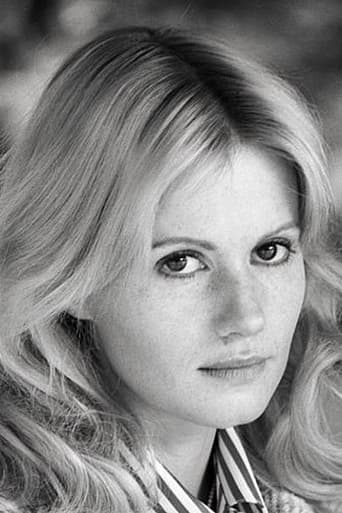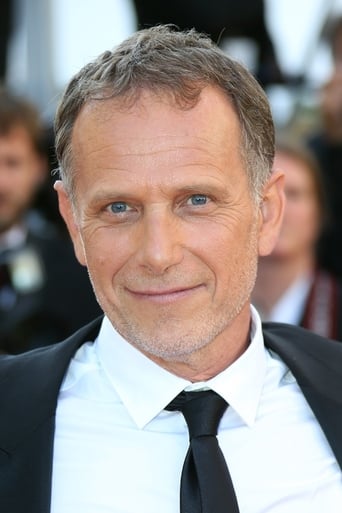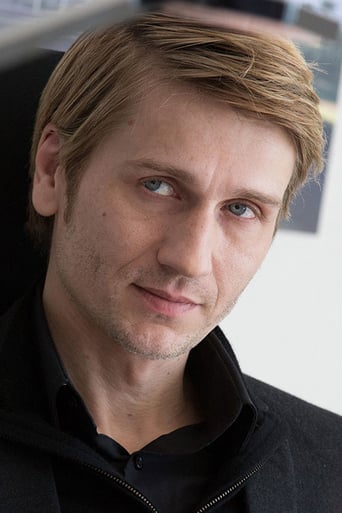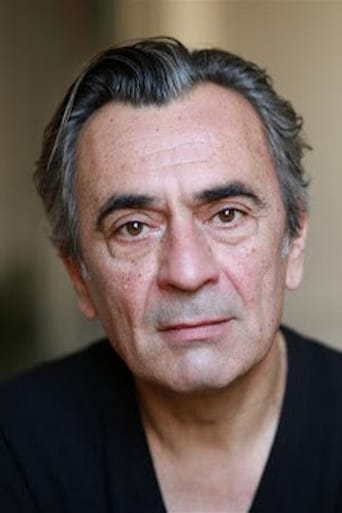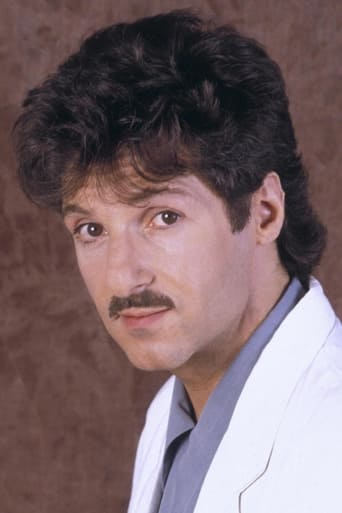DubyaHan
The movie is wildly uneven but lively and timely - in its own surreal way
Mathilde the Guild
Although I seem to have had higher expectations than I thought, the movie is super entertaining.
Gary
The movie's not perfect, but it sticks the landing of its message. It was engaging - thrilling at times - and I personally thought it was a great time.
Haven Kaycee
It is encouraging that the film ends so strongly.Otherwise, it wouldn't have been a particularly memorable film
Claudio Carvalho
In a small town in France, Nicole Kunstler (Miou-Miou) and her husband Jean-Marie Kunstler is a traditional French middle-class couple, bored with their years of marriage and running a small business of cleaning and ironing clothes with some financial difficulties. When they meet the bisexual Loic (Stanislas Merhar) working as drag in a night-club with his sister Marylin (Mathilde Seigner), the sexually dissatisfied Nicole feels a great sexual attraction for him. The couple brings the young man to live and work with them, in a weird relationship, and Nicole has an affair with Loic and becomes a happy person. This intriguing triangle of love has a tragic end. "Nettoyage à Sec" is almost an excellent romance. The screenplay begins very daring, but the solution for the love situation is very moralist and resolved in a tragic, but easy way. The cast has a great performance and the direction is very good, but the story deserved a better conclusion. My vote is seven.Title (Brazil): "Lavagem a Seco" ("Dry Cleaning")
Havan_IronOak
To me, a romantically inclined gay man, this was a fascinating but ultimately unfulfilling tale of a `normal' French couple, Nicole and Jean-Marie Kunstler, who have grown unsatisfied with their settled, routine lives. The couple runs a dry cleaning business in an unexciting small French town. Their lives change when they go to a bar with some business associates and encounter Loïc and Marylin, a cross dressing brother/sister act. From the first, the couple is fascinated with the pair but particularly with Loïc, the sexually ambiguous brother, (played to perfection by Stanislas Merhar).The couple is so enchanted with the pair that they take a weekend to the city where the performers are appearing next. When the sister decides to end the act and run away with her lover, the brother insinuates himself into the couples lives. The young man claims to be, and is by all indications, straight and soon takes the wife as a lover. The husband is also aroused by the boy but denies his attraction. Soon the boy is living in the couple's home and working in the Dry Cleaning shop and is showing a talent for that type of work. He even befriends the couple's child and helps him with homework and takes him skating.Whether his good work arises from Loïc's desire to repay Jean-Marie or from some innate talent for dry cleaning is unclear. I think that Loïc feels guilty about cuckolding this man who has shown him nothing but kindness, genuinely likes the guy, and is aware of the man's attraction to him. He wants to make amends in any way that he can. Ultimately Loïc offers himself to Jean-Marie physically but is rebuffed. Whether it's the husband's `homosexual panic' or his actually seeing his wife with Loïc during one of their trysts, Jean-Marie decides that Loïc must go. This leads to the final and I think dissatisfying concluding scenes.
allyjack
(WARNING - CONTAINS MILD SPOILER) The somewhat unresolved nature of the very last scene is ultimately dissatisfying, leaving a feeling that the film may have been inherently overly familiar - a chronicle of a straight- laced, unsatisfied couple who taste forbidden fruit and are almost ruined by it. The film's air of calm scrutiny is generally engrossing though, as it sketches the quiet disappointments and compromises of rural small business; a life caught up by routine, where years go by without a vacation. The plot initially finds the couple fascinated by sheer difference, leaving an enjoyable ambiguity as to whether there's any real sexual attraction on Berling's part toward Merhar, or whether it's largely a matter of intertwined ego, loneliness, and a symbolic yielding to the limitations of his life (the sexual encounter here looks like a pure power play). But the film's restraint makes it easy to take for the most part as a low-key, well-observed black comedy, thriving on the contrast between the ultra-orderly dry cleaning business and the flashy excess of the cross-dressing scene.
Robert Armstrong
Saw a humongously uninspired French movie, Dry Cleaning (Nettoyage a Sec), that the advertisers swear won Cesar awards all over the place, but is just a hodgepodge of every foreign movie cliche that might strike an upscale audience as profound: a sexually ambiguous stranger insinuates himself into the lives of a married couple, engaging them in sexual games that bring them to the brink of self-destruction. She's desolate without the young man; the husband wrestles with his denial that he's also turned on by the stranger. Of course this is "art theatre," so we are to suppose that every straight man is really a gay man who hasn't found out yet. On the other hand the homosexual aspect of the story becomes the vehicle that carries the husband into his own corner of hell, an idea that seemed arty thirty-odd years ago (The Sergeant; The Children's Hour) but now is just insulting to gays. And of course the story is dotted with major and minor sexual interludes and taunts, but relationships are left to angry, dissatisfying silences between not-particularly-interesting characters. Story elements are offered that suggest the plot could go somewhere else but instead lead nowhere (the young man's sister leaves and conceivably might return looking for him; the young man has genuine talent as a dry-cleaner and might make a life for himself beyond his "drifter" existence; the married couple thinks about moving to Canada). I think the filmmaker has a long way to go in justifying why he wanted to make this movie -- what he thought would make this film extraordinary compared to some other story about dissolving marriage or sexual curiosity. Imagine La Strada if Anthony Quinn just sat around and brooded. If Thomas Mann had written Dry Cleaning it would be called Death in Suburbia: except that, speaking strictly for myself, I think it's the audience that dies.
